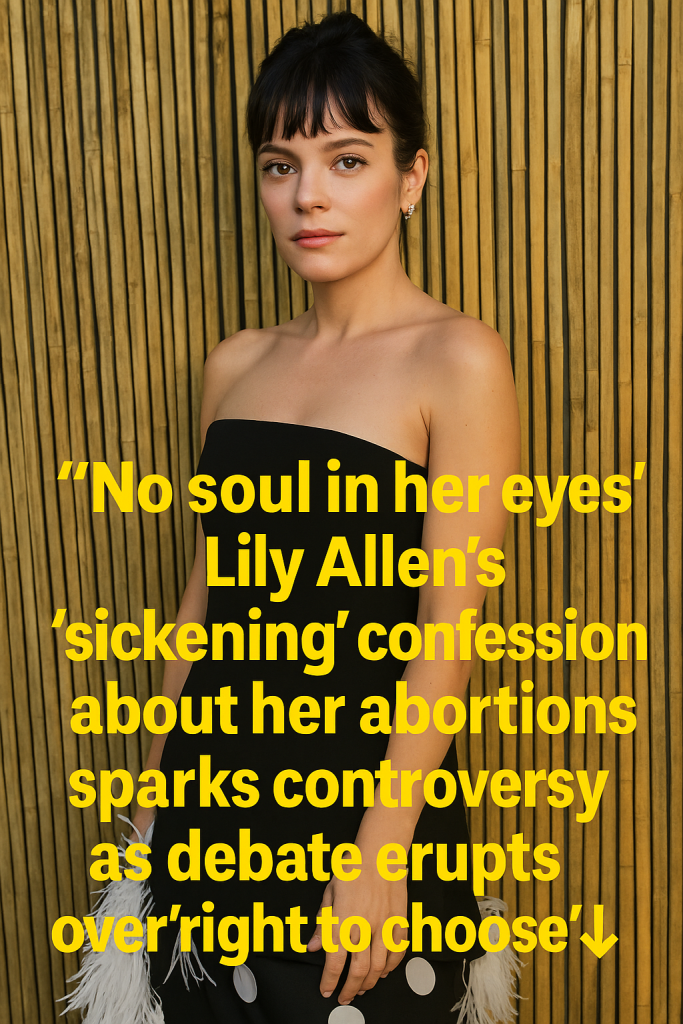Lily Allen, the British singer-songwriter known for her candid public persona, has recently sparked fresh controversy following a highly charged confession about her personal experiences with abortion. Describing the emotional aftermath with the phrase “no soul in her eyes,” Allen’s remarks have ignited a heated debate on social media and beyond about the complexities of abortion and women’s reproductive rights.
In a revealing interview, Allen opened up about undergoing multiple abortions and the profound psychological toll these decisions have taken on her. She described feelings of emptiness and detachment, stirring strong reactions among fans and critics alike. The phrase “no soul in her eyes” was highlighted by many as emblematic of the artist’s deep internal struggle.
This raw confession comes at a time when abortion rights remain one of the most polarizing and urgent issues worldwide. Allen’s statement was met with a mixture of support, sympathy, and outspoken criticism. Some applauded her bravery for shedding light on the often unspoken emotional complexities that women may experience, while others condemned the remarks as potentially undermining the fundamental “right to choose.”
Advocates for reproductive rights emphasized that Allen’s experience underscores the importance of accessible and safe abortion services, including emotional and psychological support for women. They noted that an individual’s pain does not detract from the necessity of protecting choice but rather reveals the layered realities many face.
Conversely, some pro-life supporters leveraged Allen’s remarks in their arguments against abortion, suggesting that her description of emotional damage serves as evidence of abortion’s moral and psychological harm. The phrase “no soul in her eyes” quickly became a rallying point for those aiming to challenge abortion legislation and promote alternative options.
The broader public discourse has since expanded to consider how celebrities influence sensitive social debates. Allen, who has a history of speaking candidly about personal and political issues, found herself at the center of an ongoing cultural conversation about mental health, personal trauma, and reproductive autonomy.
Experts in mental health caution that the emotional responses tied to abortion vary widely among individuals. Many women report relief and empowerment following the procedure, while others, like Allen, may experience grief or complex feelings. These nuances, they argue, highlight the necessity of destigmatizing abortion and providing comprehensive care tailored to individual experiences.
Allen’s comments provide a potent reminder that discussions about abortion cannot be simplified into black-and-white narratives. They encompass a spectrum of experiences — emotional, ethical, and social — that require compassion and deeper understanding.
As the debate continues to unfold on social platforms and in communities worldwide, the question of how to respect and protect women’s rights while acknowledging personal struggles remains an ongoing challenge. Lily Allen’s candid expression has offered no easy answers but has undeniably rekindled essential conversations about choice, consequence, and humanity.



